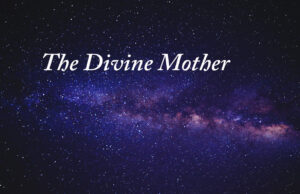People have different ideas of the God. Some envision it as something pure, beautiful, true, absolute, or supreme. Others see God as a being or a judge, perceiving it as all-powerful or all-knowing. These varied conceptions illustrate the diversity of perspectives regarding God.
As Mother explains, “Everyone forms their idea of the Divine based on personal taste, understanding capacity, mental preferences, and desires. People conceive the Divine they wish to encounter, thereby limiting their realizations significantly.”
Often, within certain religions, there’s a notion that God punishes because human consciousness tends to seek punishment. When individuals feel the need to punish those they perceive as wrongdoers and see them go unpunished, their concept of this God can become chaotic. Some religions even take it upon themselves to administer punishment when they perceive God has not. If one believes God to be a judge, they will encounter it as such, thereby limiting God’s potential. This approach may lead to an unpleasant experience, as judging others ultimately places oneself in a precarious position.
Conversely, viewing God as infinite grace, love, or mercy expands one’s understanding. Embracing these aspects of God allows for a broader perspective that transcends human limitations.
In Indian thought, there’s a captivating concept that views God as a child, found in the Vedas where Agni is treated as a child. This perspective symbolizes new consciousness entering our troubled ego-centered awareness, prompting a necessary adjustment.
This idea is reflected in practices like the Pushti Marg in the Vaishnava sect, where Krishna is worshipped as a child. Here, devotees care for Krishna in a manner akin to nurturing a child, illustrating how profound truths can be humanized without losing their essence.
Mother further emphasizes, “If we understand that the Divine encompasses all conceivable notions and infinitely more, we move closer to integrality.” Integrality poses challenges to human consciousness, which tends to define itself through limitation. However, with effort, one can expand enough to approach something truly integral.
Neti Neti, a Vedic principle, suggests that God transcends any human conception—it is beyond all experiences. Conversely, iti iti affirms that everything is, in its deepest essence is God.
Ultimately, attempting to confine God to personal perceptions or actions—declaring what is God and what is not—is misguided because God surpasses such distinctions, encompassing all.
Affectionately,
Alok Da



